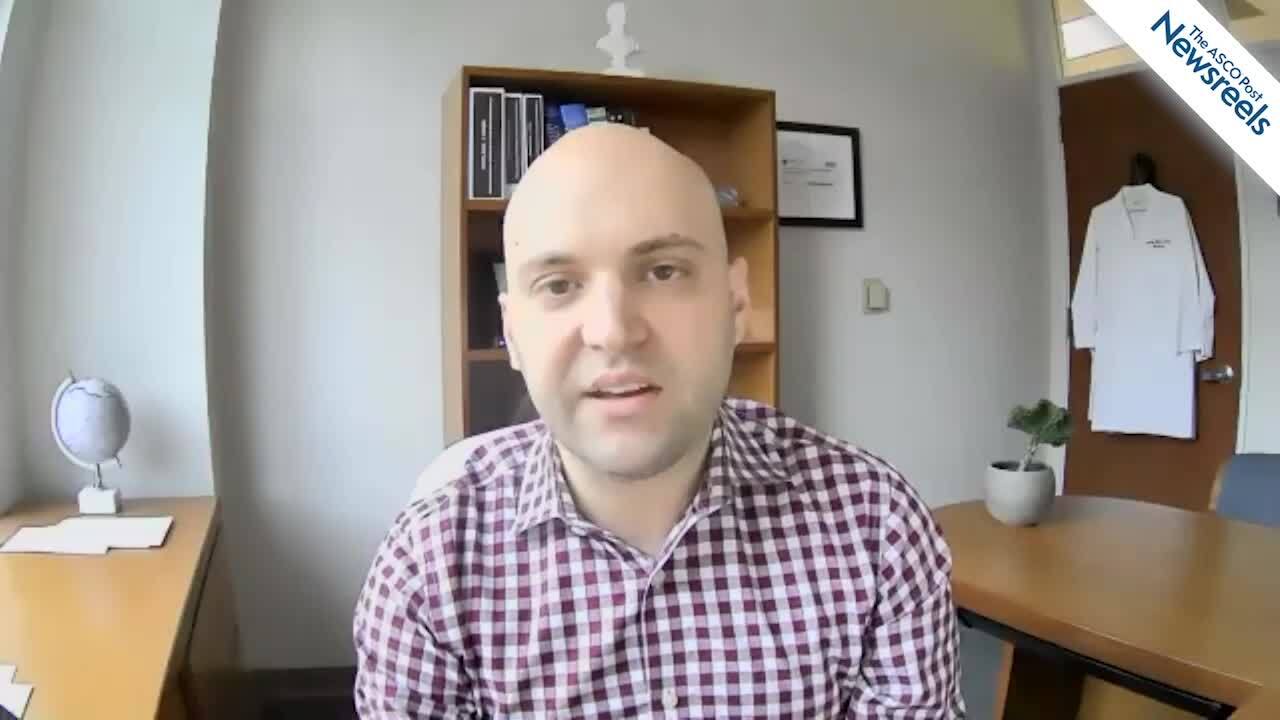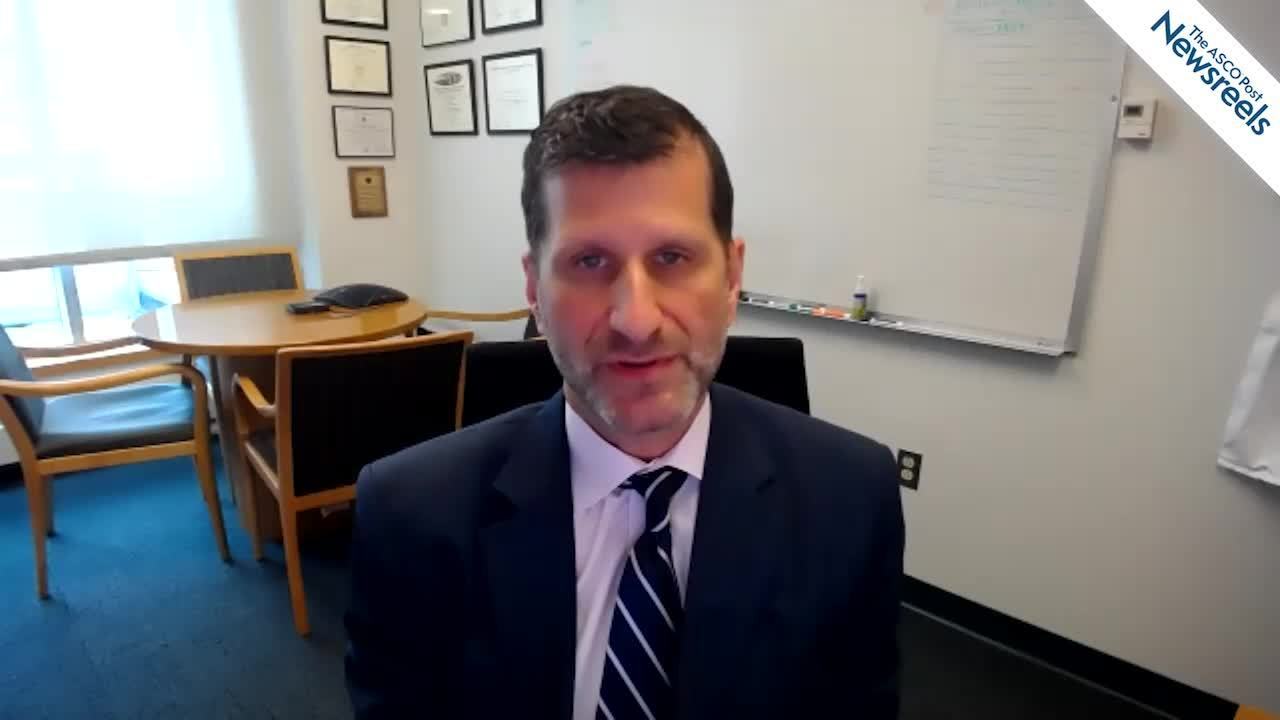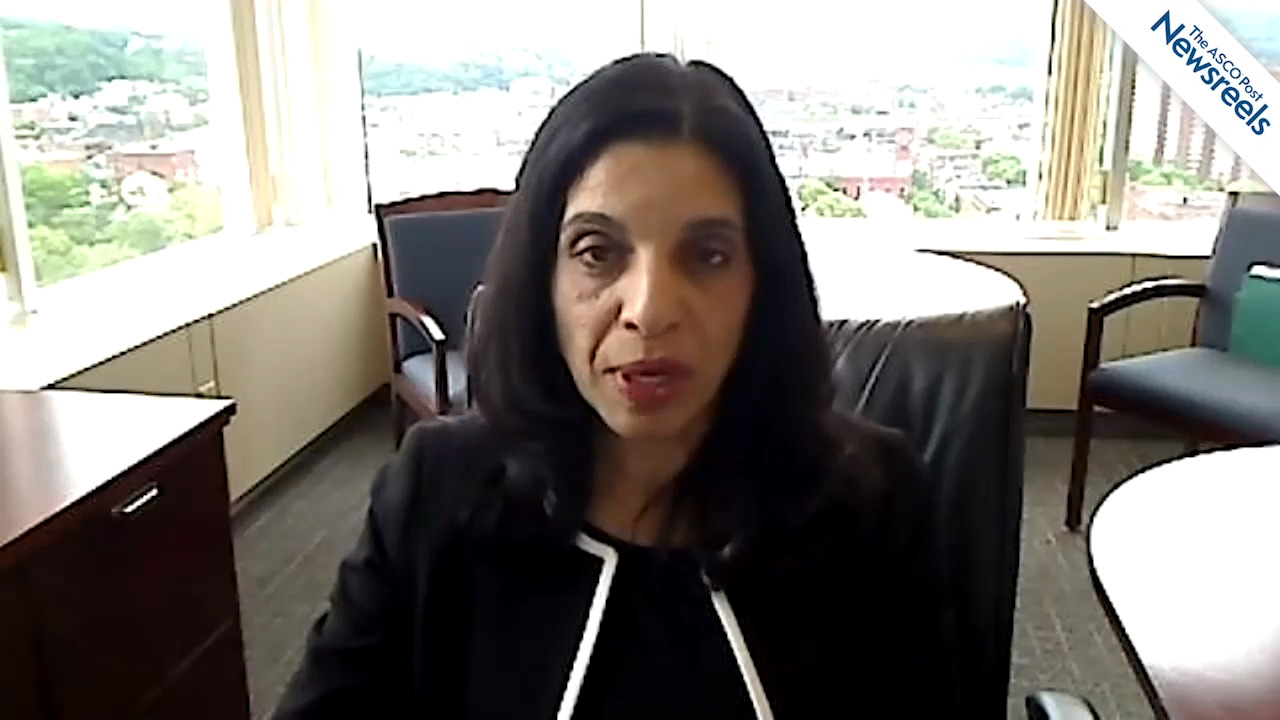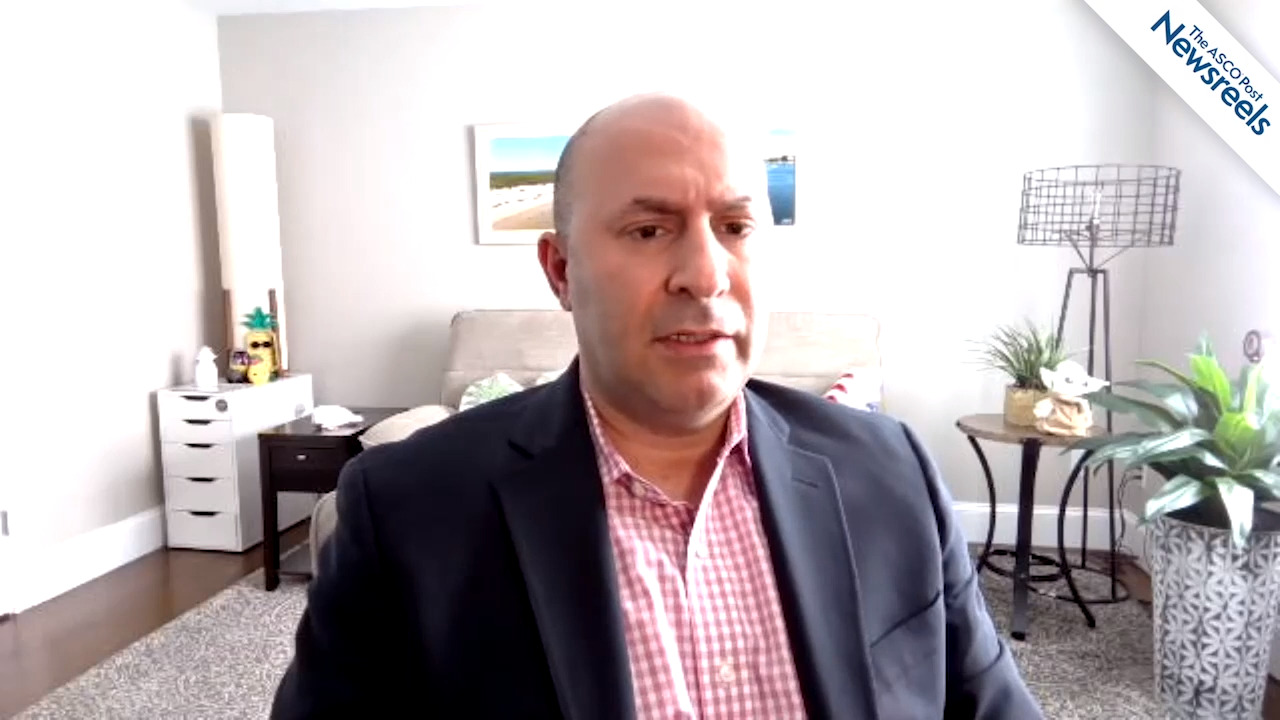Taiga Nishihori, MD, on Multiple Myeloma: Maintenance Ixazomib After Transplant
2021 ASCO Annual Meeting
Taiga Nishihori, MD, of the H. Lee Moffitt Cancer Center and Research Institute, discusses the outcome of a trial that explored maintenance therapy with ixazomib after allogeneic hematopoietic cell transplantation in patients with high-risk multiple myeloma. Toxicities unrelated to the maintenance treatment forced the trial to close prematurely (Abstract 7003).
The ASCO Post Staff
Nicholas J. Short, MD, of The University of Texas MD Anderson Cancer Center, discusses early results from a phase II study which showed that combining ponatinib and blinatumomab in patients with Philadelphia chromosome–positive acute lymphoblastic leukemia may prove to be an effective chemotherapy-free regimen that might reduce the need for allogeneic hematopoietic stem cell transplant (Abstract 7001).
The ASCO Post Staff
Michael J. Morris, MD, of Memorial Sloan Kettering Cancer Center, discusses phase III results of the VISION study, which showed that lutetium-177–PSMA-617 (LuPSMA), a targeted radioligand therapy, plus standard-of-care treatment improves radiographic progression-free survival and extends overall survival compared with standard of care alone in men with metastatic castration-resistant prostate cancer (Abstract LBA4).
The ASCO Post Staff
Priya Rastogi, MD, of the University of Pittsburgh, discusses results from the NRG Oncology/NSABP B-42 trial, which evaluated the utility of the 70-gene MammaPrint assay in predicting the benefit of extended letrozole therapy in patients who had completed 5 years of adjuvant endocrine therapy (Abstract 502).
The ASCO Post Staff
Toni K. Choueiri, MD, of Dana-Farber Cancer Institute, discusses phase III results from KEYNOTE-564, which evaluated the safety and efficacy of pembrolizumab in the adjuvant treatment of patients with renal cell carcinoma who have undergone nephrectomy for intermediate-high or high-risk disease or no evidence of disease (Abstract LBA5).
The ASCO Post Staff
Brian I. Rini, MD, of Vanderbilt University, discusses findings from KEYNOTE-426, the longest follow-up of a checkpoint inhibitor (pembrolizumab) combined with a VEGF/VEGFR inhibitor (axitinib) for first-line clear cell renal cell carcinoma. The trial results continue to support this combination as a standard of care for patients with previously untreated disease (Abstract 4500).





